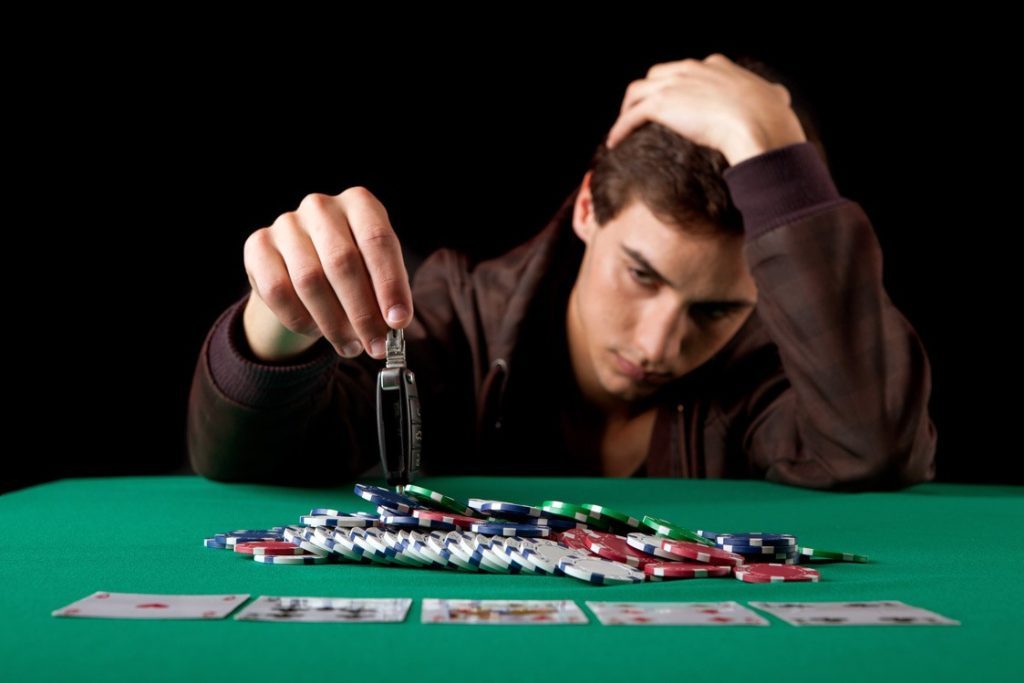

Gambling addiction is a progressive powerful addiction which is categorized as an impulse-control disorder.
Gambling can be a fun pastime that whispers of fast, easy money and the ability to live out your dreams with just the pull of a lever. It has been around for thousands of years and is considered one of the earliest of human vices. However, just like other behaviours, gambling can have numerous psychological, physical, and social consequences. It can manifest to a full-blown gambling addiction with financial destruction all too easily. Let us look at this further so that you can spot the signs of gambling addiction in yourself or a family member.
It is not a drug, so how can gambling be an addiction? Well, behaviours can be addictive as well, if they are rewarding to the person in some way. It becomes a cycle of reinforcement, where a person does something, in this case, gambles, which in some cases can activate the pleasure centres of the brain. When these centres become active in the brain, the feeling can be immensely powerful; it may be enough to forget a person’s normal troubles or anxiety. Thinking of it this way, it can be easy to see why gambling could become addictive if the brain is finding relief just by doing it.
Compulsive gambling has another problem. It offers someone who may already be struggling with the fast, easy solution to life’s challenges. It offers financial independence and never having to work again. All that needs to happen is you get lucky once, and maybe the next roll of the dice will do it. With that thought process, a person is on their way to a gambling addiction.
Gambling addiction will be different in some regards than a drug or alcohol addiction, but still very similar in other ways. The addiction will not have much of a physical component, but a person with an addiction will display many of the same behaviours as a person with any other type of addiction.
Someone with a gambling addiction will:
A person with a gambling addiction is also likely to suffer an emotional toll as well. They may find themselves suffering from depression or anxiety, as the weight of the problem and the financial burden wears on them. They may have a noticeably short temper and be agitated and upset for no reason. Finally, they may talk about feeling hopeless or suicidal as the desperation sets in and feeling trapped becomes a reality.
Other behaviours that you might see include sleeplessness, recklessness such as driving recklessly or doing other dangerous things, or worst-case scenario the person makes a suicide attempt because they feel so trapped and hopeless.
While this is a profoundly serious condition, it is also treatable. The hardest part is taking that first step towards recovery, from there, it does get easier.
In a residential rehab treatment centre, the person with the gambling compulsion will be thoroughly assessed for underlying causes. This is because many with addiction are using it as a coping strategy in combatting other issues, such as depression or relationship difficulties. Tackling the obsession means treating the other conditions as well.
The person will also receive education on compulsions, dependency, mental illness, as well as the reward and reinforcement cycle that has them trapped in a loop. Finally, they will get both individual and group counselling. This will focus on healthy ways to cope with and understand the unhelpful thought processes that lead to the addiction in the first place. Using cognitive behavioural therapy,(CBT) the individuals in treatment will get the assistance they need in correcting those unhealthy thoughts. Support groups are another way to get the necessary tools to overcome a craving. There, the people in the group can learn from one another, hear each other’s stories, and learn what is helpful, and what is destructive from those that have already been there.
Gambling may seem like a harmless pastime, but it has the potential for misery, financial devastation, and dependence when it is used as a coping skill or a fast, easy way out of hardship. This does not have to be the case. Gambling infatuation can cause tremendous relationship, mental, emotional, and financial problems. If you or someone you love has the symptoms of compulsive gambling, please reach out for help now, because any more damage is done.
Contact Rehab Guide on 02072052845 for help and advice.